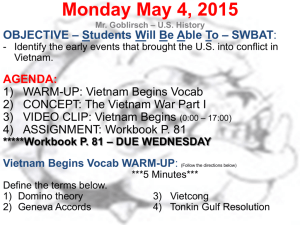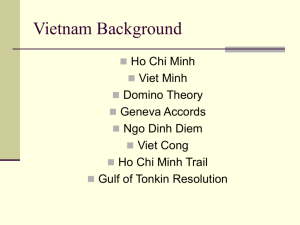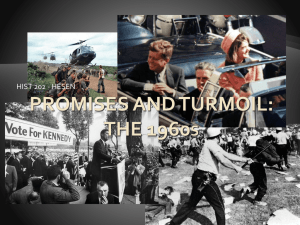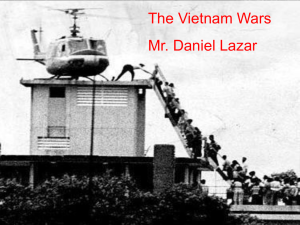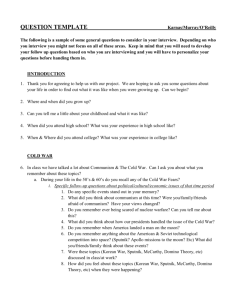Vietnam Lecture Notes
advertisement
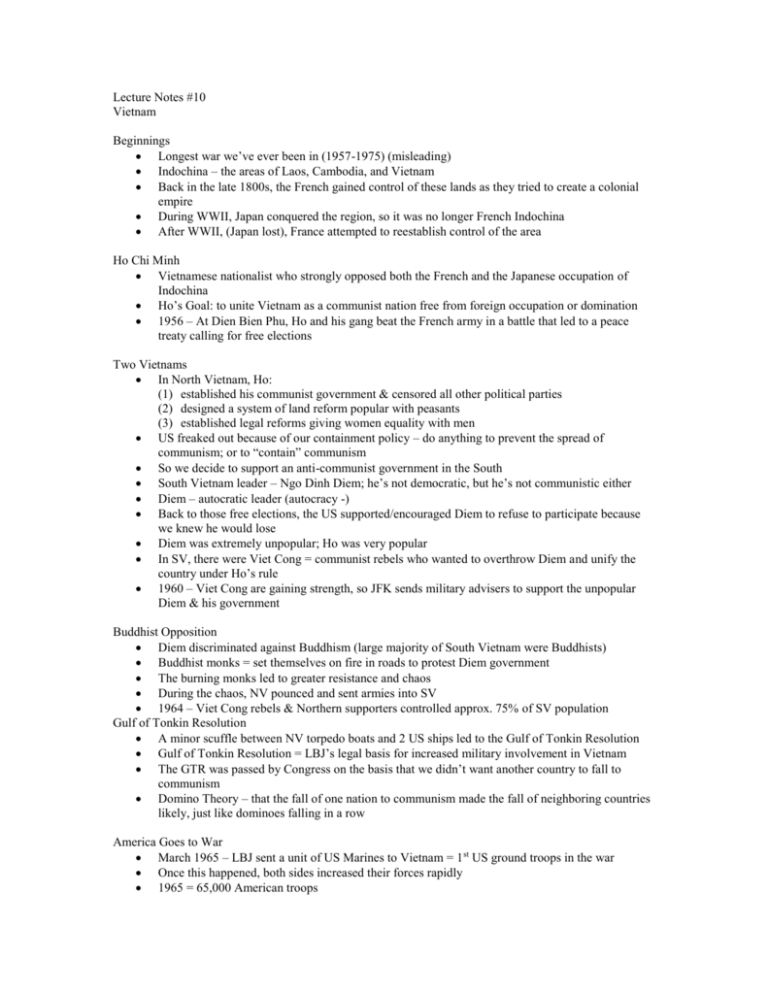
Lecture Notes #10 Vietnam Beginnings Longest war we’ve ever been in (1957-1975) (misleading) Indochina – the areas of Laos, Cambodia, and Vietnam Back in the late 1800s, the French gained control of these lands as they tried to create a colonial empire During WWII, Japan conquered the region, so it was no longer French Indochina After WWII, (Japan lost), France attempted to reestablish control of the area Ho Chi Minh Vietnamese nationalist who strongly opposed both the French and the Japanese occupation of Indochina Ho’s Goal: to unite Vietnam as a communist nation free from foreign occupation or domination 1956 – At Dien Bien Phu, Ho and his gang beat the French army in a battle that led to a peace treaty calling for free elections Two Vietnams In North Vietnam, Ho: (1) established his communist government & censored all other political parties (2) designed a system of land reform popular with peasants (3) established legal reforms giving women equality with men US freaked out because of our containment policy – do anything to prevent the spread of communism; or to “contain” communism So we decide to support an anti-communist government in the South South Vietnam leader – Ngo Dinh Diem; he’s not democratic, but he’s not communistic either Diem – autocratic leader (autocracy -) Back to those free elections, the US supported/encouraged Diem to refuse to participate because we knew he would lose Diem was extremely unpopular; Ho was very popular In SV, there were Viet Cong = communist rebels who wanted to overthrow Diem and unify the country under Ho’s rule 1960 – Viet Cong are gaining strength, so JFK sends military advisers to support the unpopular Diem & his government Buddhist Opposition Diem discriminated against Buddhism (large majority of South Vietnam were Buddhists) Buddhist monks = set themselves on fire in roads to protest Diem government The burning monks led to greater resistance and chaos During the chaos, NV pounced and sent armies into SV 1964 – Viet Cong rebels & Northern supporters controlled approx. 75% of SV population Gulf of Tonkin Resolution A minor scuffle between NV torpedo boats and 2 US ships led to the Gulf of Tonkin Resolution Gulf of Tonkin Resolution = LBJ’s legal basis for increased military involvement in Vietnam The GTR was passed by Congress on the basis that we didn’t want another country to fall to communism Domino Theory – that the fall of one nation to communism made the fall of neighboring countries likely, just like dominoes falling in a row America Goes to War March 1965 – LBJ sent a unit of US Marines to Vietnam = 1 st US ground troops in the war Once this happened, both sides increased their forces rapidly 1965 = 65,000 American troops 1969 = 540,000+ American troops Strategies Backtrack: To defeat both GM & JP in WWII, we used our massive firepower and technological superiority to be victorious; we thought we could easily do the same in Vietnam Result: We launched an extensive bombing campaign in NV, sent planes to attack large troop formations, attacked the Ho Chi Minh Trail – the enemy supply route through Indochina Firepower was not effective against guerilla warfare Guerilla Warfare = surprise attacking and retreating before the enemy could react with useful counter measures Viet Cong would hide in the jungle terrain and utilize ambush attacks Advantage for them: (1) knew the land (2) had the support of the people (3) could appear and vanish with ease Course of the War 1965-1967 = we fought to a draw Although US inflicted terrible casualties on the enemy armies and the civilian population, they were not successful in (1) getting the NV troops to withdraw (2) winning the hearts & minds of the SV people Reaction Back Home Heavy US casualties = increased resistance to the war Financial cost of the war was also beginning to be felt as new taxes were imposed, and some of the social programs (from LBJ’s Great Society) were cut Hawks vs. Doves intensified & led to large demonstrations and opposition to the military draft in the US Hawks = those who supported the war Doves = those who opposed the war
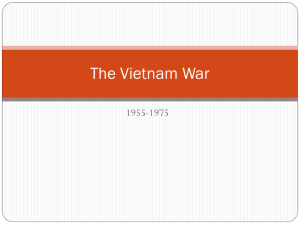
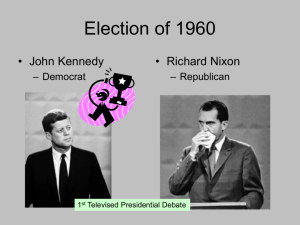
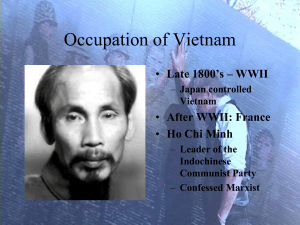
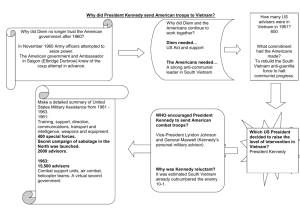
![vietnam[1].](http://s2.studylib.net/store/data/005329784_1-42b2e9fc4f7c73463c31fd4de82c4fa3-300x300.png)
